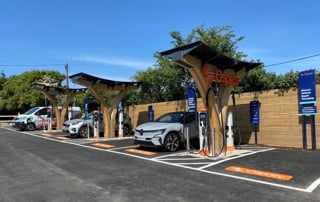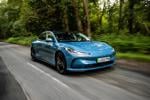Fleet managers are having to adapt fast to new demands placed upon them by Covid-19, but new research suggests some familiar challenges remain.
The survey, from the Arval Mobility Observatory, suggests roads, clean air zones and alternative fuels top the list of challenges by fleet and mobility managers over the next five years.
Almost half (43%) of respondents listed a lack of road infrastructure, with the potential for increased congestion, as a major issue.
The introduction of more clean air zones (CAZs) in towns and cities was the second biggest concern (30%) along with the need to find suitable alternative fuel vehicles (AFVs) (30%).
Unclear Government policy towards transport (27%), increased vehicle taxation (23%) and increased driver personal taxation (16%) were also reported as key challenges.
“It’s clear that businesses are thinking very hard about the practicalities surrounding the day-to-day use of cars and vans, as shown in their concerns over road infrastructure and clean air zones,” said Shaun Sadlier, head of Arval Mobility Observatory in the UK.
“The latter especially is a subject that is potentially quite confusing, with a whole range of different measures being adopted across the country and some now being delayed by the coronavirus crisis.
“Our view is that this complexity is probably at the root of the concerns being reported, because the rules that need to be observed in the majority of cities are quite moderate.”
Fleet News has looked at how air quality improvements achieved during lockdown, if maintained, could weaken the case for charging CAZs.
The Government CAZ framework states: “Where air quality has improved to the level required and there is evidence this improvement would be maintained, the Government expects local authorities to remove the elements of the zone that are no longer required at the earliest opportunity.”
In terms of alternative fuels, Sadlier said: “A positive development is that an increasing range of models are being introduced, meaning that more drivers have the choice of an appropriate vehicle to meet their needs.
“Other key points to consider are that choice lists are carefully constructed using a whole life cost methodology and that there is an understanding of the recharging infrastructure and how to use it effectively.”
Fleet News editor-in-chief Stephen Briers interviews Arval Mobility Observatory head Shaun Sadlier about 2020's research findings.
Referring to the concerns expressed in the research around the clarity of Government policy and the possibility of increased taxation for both cars and drivers, Sadlier said: “Our view is that Rishi Sunak’s March Budget added quite a high degree of certainty in all of these areas and that, by now, for many fleets these fears will have been allayed.”




















Login to comment
Comments
No comments have been made yet.